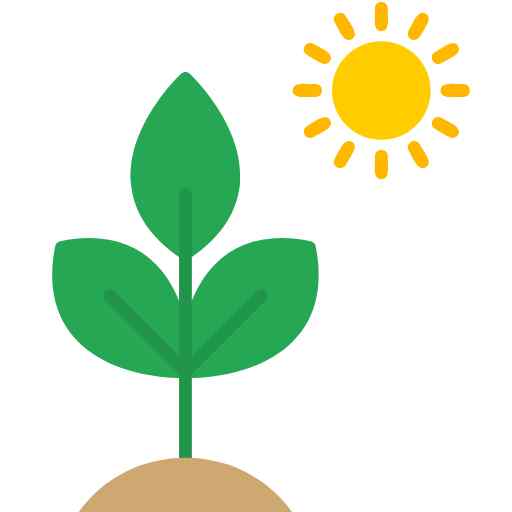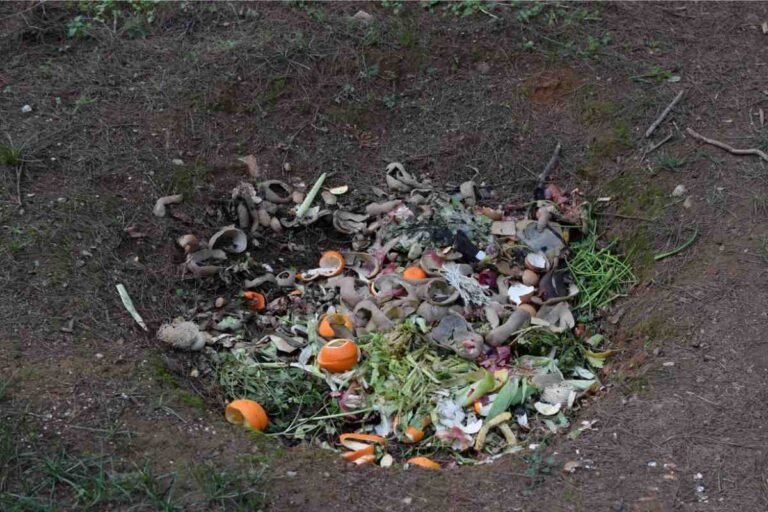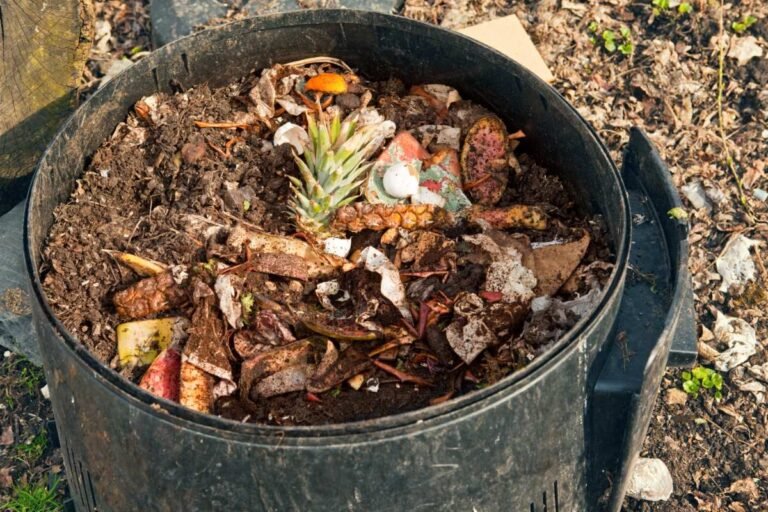How Does Composting Work? Understanding the Basics of Composting
Composting is a sustainable, environmentally friendly practice that allows you to recycle organic waste and create nutrient-rich soil for your garden. If you’re new to composting, understanding the basics of composting is essential to create a successful compost pile. Start your composting journey today and witness the transformation of waste into a valuable resource for your plants. In this article, we will explore the fundamentals of composting, including the key components, various methods, and how to maintain and use your compost pile.
What is Composting?
Composting is the natural process of breaking down organic materials, such as kitchen scraps and yard waste, into a nutrient-rich, soil-like substance called humus. This process is carried out by microorganisms, insects, and other decomposers that feed on the organic matter, converting it into valuable nutrients for plants. Composting not only helps you recycle waste, but it also enriches your garden soil and reduces the need for synthetic fertilizers.
The Basics of Composting: Key Components
For successful composting, you need to provide the right environment for the decomposers to thrive. The basics of composting can be summarized into four key components:
Carbon-Rich Materials (Browns)
These materials provide energy for the microorganisms and include leaves, straw, wood chips, and shredded paper.
Nitrogen-Rich Materials (Greens)
These materials supply protein for the microorganisms and include grass clippings, fruit and vegetable scraps, coffee grounds, and eggshells.
Oxygen
Decomposers require oxygen to break down the organic matter efficiently. Turning or aerating your compost pile ensures an adequate supply of oxygen.
Moisture
A compost pile should be kept moist, similar to the consistency of a wrung-out sponge, to support the decomposition process.
Composting Methods
There are several methods to choose from when starting your composting journey.
Traditional Compost Pile or Bin
This method involves creating a heap or using a designated container to hold your compost materials. Be sure to layer brown and green materials and turn the pile regularly to maintain oxygen levels.
Trench Composting
This method involves digging a trench in your garden and burying your kitchen scraps directly into the soil. Over time, the organic matter will decompose, enriching the soil.
Vermicomposting
This method uses worms, usually red wigglers, to break down organic waste in a specialized container. The resulting product, called vermicompost, is an excellent soil amendment.
Materials to Include and Avoid in Your Compost Pile
When building your compost pile, use a balanced mix of brown and green materials. Here are some materials to include and avoid.
Include
Fruit and vegetable scraps, coffee grounds, tea leaves, eggshells, grass clippings, leaves, straw, wood chips, and shredded paper.
Avoid
Meat, bones, dairy products, oils, fats, diseased plants, and invasive weeds, as these can attract pests or introduce harmful pathogens into your compost.
Maintaining Your Compost Pile
To ensure your compost pile decomposes efficiently, follow these composting basics for maintenance:
- Regularly turn or aerate your compost pile to maintain oxygen levels and promote even decomposition.
- Keep the pile moist by watering as needed, ensuring the consistency remains like that of a wrung-out sponge.
- Monitor the temperature of your pile, aiming for a range of 130 to 160°F (55 to 70°C) for optimal decomposition. If the temperature is too low, add more nitrogen-rich materials; if it’s too high, turn the pile to dissipate heat and add more carbon-rich materials.
Using Finished Compost in Your Garden
Once your compost has fully decomposed, it will have a dark, crumbly texture and an earthy smell. To use your finished compost, follow these compost basics:
- Amend your garden soil by mixing in a 2 to 4 inch layer of compost before planting.
- Apply compost as a mulch around plants to help conserve moisture and suppress weeds.
- Create a nutrient-rich potting mix by combining equal parts compost, garden soil, and sand or perlite.
FAQs about Basics of Composting
Why is Understanding the Basics of Composting Important?
Understanding the basics of composting is crucial for creating a successful compost pile, maintaining it effectively, and using the finished compost in your garden. By grasping composting basics, you can recycle waste, enrich your garden soil, and reduce the need for synthetic fertilizers.
What are the Key Components of Composting?
The key components of composting include carbon-rich materials (browns), nitrogen-rich materials (greens), oxygen, and moisture. These components provide the right environment for decomposers to break down organic matter efficiently.
What are Some Common Composting Methods?
Common composting methods include traditional compost piles or bins, trench composting, and vermicomposting (using worms to break down organic waste).
Which Materials Should I Include and Avoid in My Compost Pile?
Include materials such as fruit and vegetable scraps, coffee grounds, tea leaves, eggshells, grass clippings, leaves, straw, wood chips, and shredded paper. Avoid meat, bones, dairy products, oils, fats, diseased plants, and invasive weeds.
How can I Maintain My Compost Pile?
Maintain your compost pile by regularly turning or aerating it to maintain oxygen levels, keeping the pile moist, and monitoring its temperature for optimal decomposition.
When is My Compost Ready for Use, And How do I Know?
Finished compost will have a dark, crumbly texture and an earthy smell. It typically takes several months for compost to fully decompose, depending on the materials used and the composting method.
How can I Use Finished Compost in My Garden?
Use finished compost by amending your garden soil, applying it as a mulch around plants, or creating a nutrient-rich potting mix by combining equal parts compost, garden soil, and sand or perlite.
Can I Compost in a Small Space or Apartment?
Yes, small-scale composting methods such as vermicomposting or using a compact, enclosed compost bin can be suitable for small spaces or apartments. Make sure to follow the composting basics to ensure a successful composting process.
Is Composting Suitable for All Types of Gardens?
Yes, composting is suitable for all types of gardens, including vegetable gardens, flower beds, and container gardens. Adding compost to your garden soil can improve its structure, nutrient content, and water retention, benefiting a wide range of plants.



